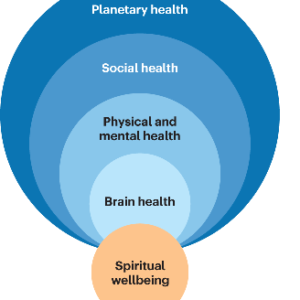Significance of wellness in Modern Life
In the modern world ruled by stress and technology, wellness is a term that is quite dissimilar in meaning. Wellness is beyond the absence of disease; it is rather a holistic approach to a balanced and meaningful life through the integration of physical health, mental well-being, emotional stability, and social harmony. As people have realized the need for self-care, wellness has been transformed from a luxury to a very integral part of modern life. The article that follows addresses the importance of wellness and its impact on our lives in this new era.
Defining Wellness in Contemporary Life
Wellness is the good process through which people make conscious choices that help them pursue a healthy and fulfilling life. Indeed, it is multidimensional, involving:
Physical well-being, therefore, means keeping the body in shape through normal exercise and diet and adequate rest.
Emotional Well-being-Identifying and regulating emotions better.
Social Wellness: Building healthy relationships and a good support network.
Mental Wellness: Maintaining a positive attitude, coping with stress, and keeping your intellect alive.
Spiritual wellness: Finding a purpose or meaning in life, maybe through religion, meditation, or self-reflection.
Modern wellness includes environmental and financial wellness because they directly impact general well-being.
This was the birth of the wellness culture.
The global wellness industry has been growing for several years. People are investing in health by opening yoga studios, mindfulness applications, fitness trackers, and organic food markets. The following are some of the factors that have led to this:
Elevated Stress Levels: Factors that include work-related stress, personal financial issues, and social expectations top the list.
Technology Overload: Overuse of mobile devices and computers will exhaust body as well as mind.
Chronic Diseases: Active lifestyles and unbalanced diets have led to the ever-mounting list of lifestyle-related diseases, including obesity, diabetes, and heart ailments.
Awareness After the Pandemic. This pandemic has unequivocally underlined the importance of mental health and overall well-being, encouraging people to lead healthier lifestyles.
Main Advantages of Worrying about Well-being
There are thousands of benefits that come with stressing wellness in the aspects of working life and personal life.
A. Health Benefits
All of them combined contribute to an improvement in energy, an enhanced immune system, and lessened susceptibility to chronic diseases in the process.
B. Innovative Psychology
Techniques such as meditation, mindfulness, and journaling actually improve concentration, memory, and even reduce anxiety dramatically.
C. Emotional stability
Focusing on emotional well-being has helped people be more responsive to distressing life challenges, hence making them more resilient and happy.
D. Good Relations
Be it social well-being, because it produces relationships, improves communication, and settles conflicts.
E. Productivity Increased
Healthy people generally look quite productive on the job, creative and more efficient.
- Contemporary Concepts of Healthiness
It sounds impossible to integrate well-being into a fast-paced lifestyle; however, practical and consistent steps can do much better for someone’s life. Here are some really effective wellness practices:
A. Physical Fitness
Exercise every day, even if that is just a 30-minute walk.
Include high fruit, vegetable, and whole grain intake in your diet.
Hydrate, and limit sugars and processed foods.
B. Psychological Well-being
Start your day by meditating or taking deep breaths.
Set time for hobbies or intellectually stimulating activities, such as reading, or even solving crosswords.
Disconnect from digital devices periodically to reduce screen fatigue.
C. Mental Well-being
Practice gratitude by noting down three things you are thankful for every day.
It’s not weak to seek therapy or counseling. In fact, it’s very strong. Encourage her to develop other listeners as well, including friends and family.
D. Social Well-being Regularly seeing the loved ones.
Make new contacts through community groups or clubs.
Volunteer for things that interest you and make you feel good.
E. Spiritual Well-being
Spend time in nature to reconnect with yourself and the environment. Mindfulness is the ability to stay in the present. Reflect on your raison d’être and take an action to prove it. Overcoming the Obstacles to Good Health Despite its benefits, most people find it difficult to prioritize wellness.
Common barriers include: The lack of time: Strict schedules allow for very little self-care opportunity. Financial Constraint: Gym membership or organic food, which are fit-related activities, are expensive.
Cultural Stigma: In some societies, mental illness is taboo. Solutions Use less expensive or complimentary wellness practice such as walking, doing home exercising or using meditation application. Health first treat health as a necessary not something optional. Facilitate culture change through open discussions of mental health and wellness. Role of the Organizations in Wellness. Employers play a huge role in the development of wellness.
There are several things that the employers can offer to employees, such as:
Gym membership or gym programs. Mental health resources. Develop flexible work schedules for enhancing work-life balance. When employees believe that they are cared for, then the productivity, engagement, and satisfaction for work increase to help individuals as well as organizations.
7. The Future of Wellness As technology advances, so will the wellness industry. Fitbits, AI-based health apps, and customized wellness programs will be the future. Moreover, with a greater appreciation for mental health in society, more open resources will be possible.






This Post Has 4 Comments